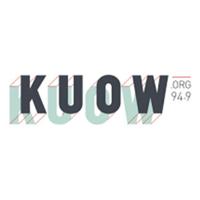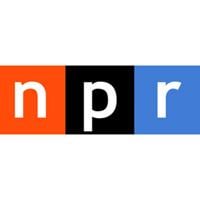Bunch of things here.
My point here is that you're asserting a general principle. An example would do, though it would not be entirely conclusive. (Mega 98.3 isn't that, for reasons I'll get into.) I'm not asking for an inductive proof here. Knowing the process is only a partial answer. And how do you know that your own unconscious bias - or commitment to received dogma - isn't entering the picture?
Because good research operations do both recruit specs and questionnaires in consort with a team of researchers and a station team.
A professional research organization does have the experience to know words and terms that are polarizing. We even know how the staff had to dress when we did in person AMTs and perceptuals so that there was as little as possible bias based on the interviewee's perception of the interviewer.
Likewise, I'm seeing assertions of a general principle but then I'm told that "every case is different". The two concepts are contradictory.
Every research project is unique. The demos may change (and, of course, with every passing year, the target loses one aged out year and gets one aged-in year. The competition is different in every market, so the P2 or P3 station we may want some listeners from changes. The mix of men to women may change for several reasons. They ethnicity of the panel may need to be changed if the market is changing. The sample pods of music used to include or exclude participants during the recruit have to change to reflect changes in music.
I saw the web page but, to be honest, it appears Mega 98.3 had more problems than just running newscasts. It's a multivariate equation and your client modified multiple variables at the same time. So it's harder, much harder, to tell which one made the difference. Singling out news as being the problem would itself be indicative of a potential bias.
The client did not "modify variables". I did. I was the PD and consultant for 6 years, right down to doing airchecks on the phone nearly every day with one or two talents (we had 7 fulltime and 4 weekenders).
The FM station never had news. Its sister station was all news and talk, with a news staff of over 60 people. It was the #1 AM station in the market, above all the others including 10 50 kw Southern Cone clear channel stations of 50 kw (we were the only 100 kw station in the market).
The previous format was all English language AC music. It was in a crowded field dominated by several other stations and poorly executed before Emmis bought it.
I know I'm being annoying here, but I feel like I'm asking honest questions and being confronted with rhetorical tricks in response. It's frustrating. I will admit to my own opinions here, based on my own experience at a research company (small, local to Houston).
The radio research companies are all either national or international. They specialize in radio research and most have been doing it for decades.
The linkage here is the vacuum that commercial radio has left for news coverage. The news/public affairs/politics coverage also seems to gain more listener support than arts-intensive coverage. Some public radio outfits are able to do both (Colorado Public Radio, Iowa Public Radio, KCUR, KBIA/KMUC, etc.) Others, when faced with a choice, pick news/public affairs/politics because that's where the greater support seems to be. Or the classical/arts coverage goes on a HD-2 channel. As for the interest in arts coverage, though, the demographic is definitely aging.
Aging and always thin. I started in 1959 at an AM/FM where the FM was all jazz and we could go months without a single ad. And we were owned by an experienced group operator. You can't do niche formats without either listener support of subsidies.
At some point, someone has to decide whether a radio station offers a service because it's a public good - even if interest in it is limited - or whether considerations of listener interest trump everything else even if means that certain forms of public service go unaddressed.
Presenting nice music to listen to while you drive or at work is a public service. There are many listeners who only want that and would not today, 20, 30, 40 or 50 years ago have wanted. The FCC force the news and Public Affairs thing on us, and even when stations tried to make those PA shows entertaining... nobody listened.
It's a direct consequence of being in a society that dumped most non-transactional considerations for broadcasting in stages, starting 40-ish years ago, in favor of a purer form of capitalism.
Interesting, but true audience based (not record sale based or jukebox or request based) music research began around 1980 with Auditorium Music Tests (AMTs) and started in the mid-70's at a few stations (KRIZ, KCBQ were first). So in the approximate time frame you mention, stations started actually researching listeners in a formal manner and they discovered that all that news and talk clutter was venomous to music based stations.
That affected public radio, too. I'm just describing it here; I'm not saying one form of the system is better than any other; I don't see the clock turning back, either. But we have to learn how to live with it somehow...or just give up and tell people to open up their streaming app (where the economic model seems to be even shakier).
And where popular podcasts cume weekly about what a mid-range station in Peoria does (since there are no music podcasts, it's really a poor comparison). Music streams of a single format or single XM music channel don't even get the listening of a big NYC or LA station.
The economic model is bad because there are so many channels that none have astounding audiences.





